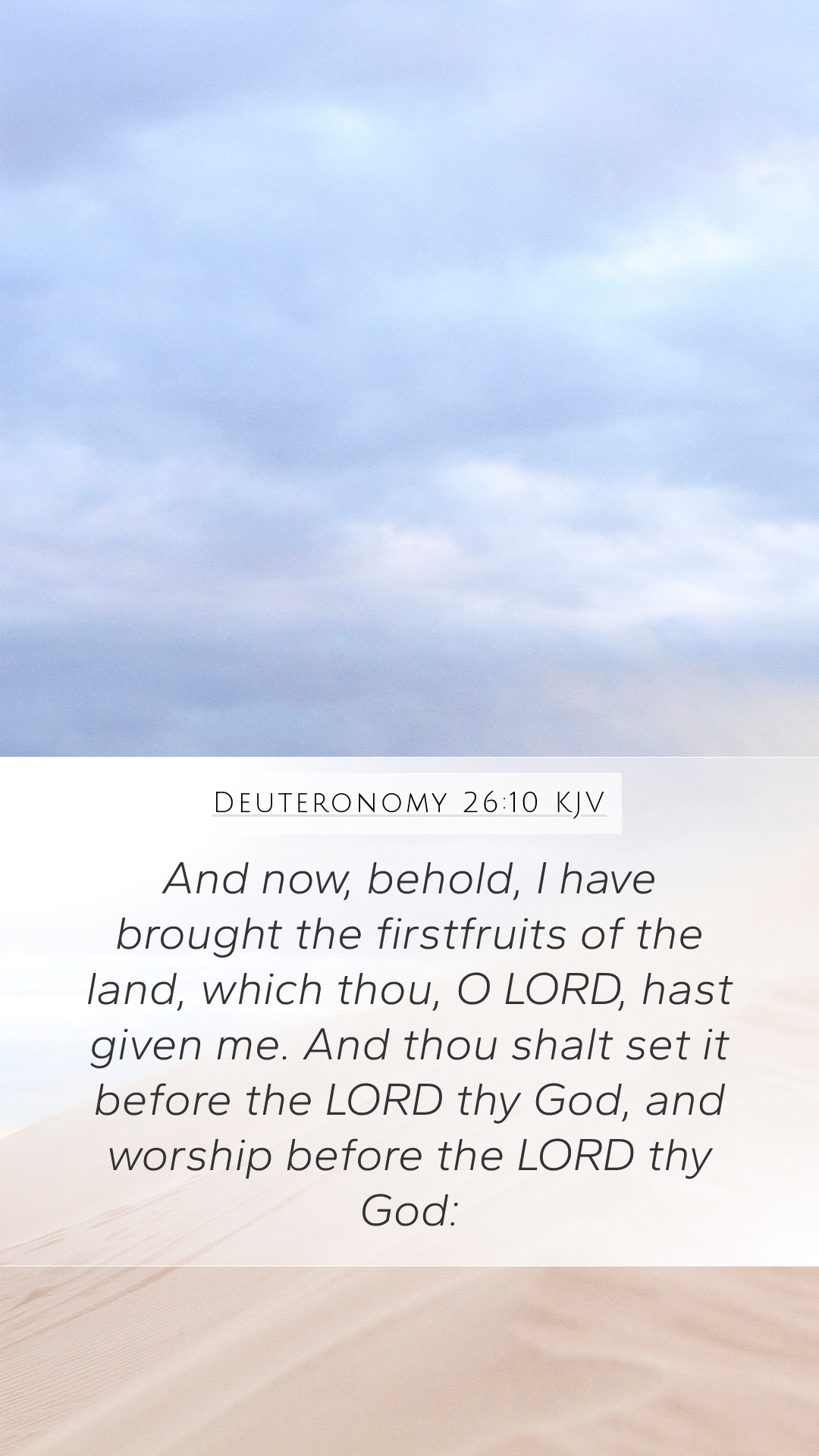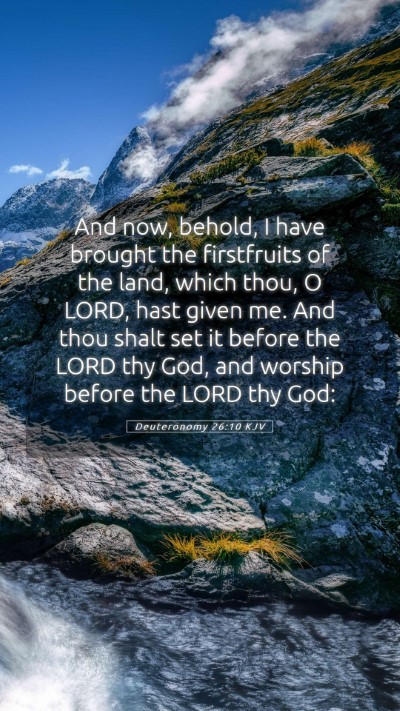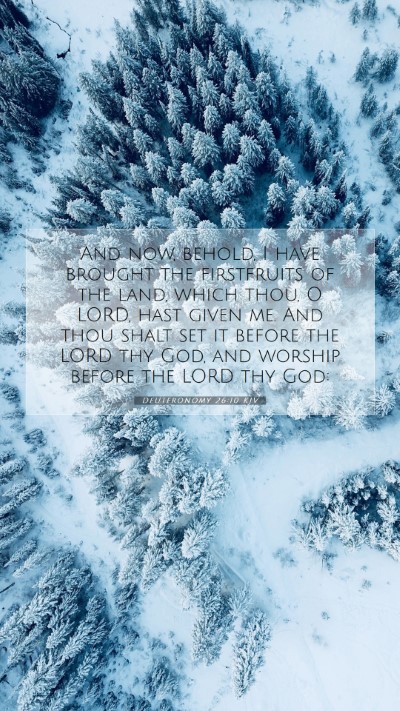Understanding Deuteronomy 26:10
Deuteronomy 26:10 is a significant verse in the Old Testament that encapsulates the themes of gratitude, worship, and the acknowledgment of God’s providence. This verse serves as a reminder of the importance of recognizing God’s blessings and presenting them with reverence. As we explore the bible verse meanings and bible verse interpretations provided by prominent public domain commentators, we can gain a deeper understanding Scripture in its historical and spiritual context.
Verse Text
"And now, behold, I have brought the first of the fruit of the land, which you, O Lord, have given me. And you shall set it before the Lord your God and worship before the Lord your God." (Deuteronomy 26:10)
Key Insights and Commentary
-
Matthew Henry's Commentary:
Henry emphasizes that this verse illustrates the duty of acknowledging God's gifts. The act of bringing the first of the fruits symbolizes gratitude and recognition of God’s provision in the lives of the Israelites. Worship is an integral part of this acknowledgment, signifying that everything they possess comes from God.
-
Albert Barnes' Notes:
Barnes points out that the first fruits were not merely a token but a substantial acknowledgment of God’s favor. This practice established a tradition where the Israelites would reflect on their relationship with God through their offerings, highlighting the connection between faith and everyday life.
-
Adam Clarke's Commentary:
Clarke elaborates on the ritualistic aspect of the offering, likening it to an act of worship that reinforces the covenant relationship between God and His people. He suggests that this offering served as both a physical and spiritual representation of their reliance on God in the land He promised them.
Spiritual Themes
This verse encapsulates several important spiritual themes:
- Gratitude: Acknowledging God's gifts fosters a spirit of thankfulness among believers, encouraging them to consider how they can express their appreciation.
- Worship: The act of presenting the first fruits signifies more than just a duty; it is an opportunity for worship and intimate communion with God.
- Covenant Relationship: The verse underscores the mutual relationship between God and His people, where blessings and responsibilities go hand in hand.
Application in Daily Life
In an age where many may overlook the origins of their blessings, Deuteronomy 26:10 calls individuals to reflect on how they can express gratitude in their lives:
- Keeping a gratitude journal to record daily blessings.
- Participating actively in community service as a form of worship and giving back.
- Incorporating moments of prayer before meals to acknowledge God’s provision.
Bible Cross References
- Exodus 23:19: "The best of the first fruits of your ground you shall bring into the house of the Lord your God."
- Leviticus 23:10: "Speak to the people of Israel and say to them, When you come into the land that I give you and reap its harvest, you shall bring the sheaf of the first fruits of your harvest to the priest."
- Proverbs 3:9-10: "Honor the Lord with your wealth and with the first fruits of all your produce; then your barns will be filled with plenty, and your vats will be bursting with wine."
Conclusion
The rich insights derived from Deuteronomy 26:10, as interpreted by various commentators, highlight the enduring principles of gratitude and worship that resonate through generations. Through bible verse explanations and bible study insights, one can grasp how the teachings of the Scripture remain relevant today, offering guidance on how to live a life characterized by thankfulness and devotion.


